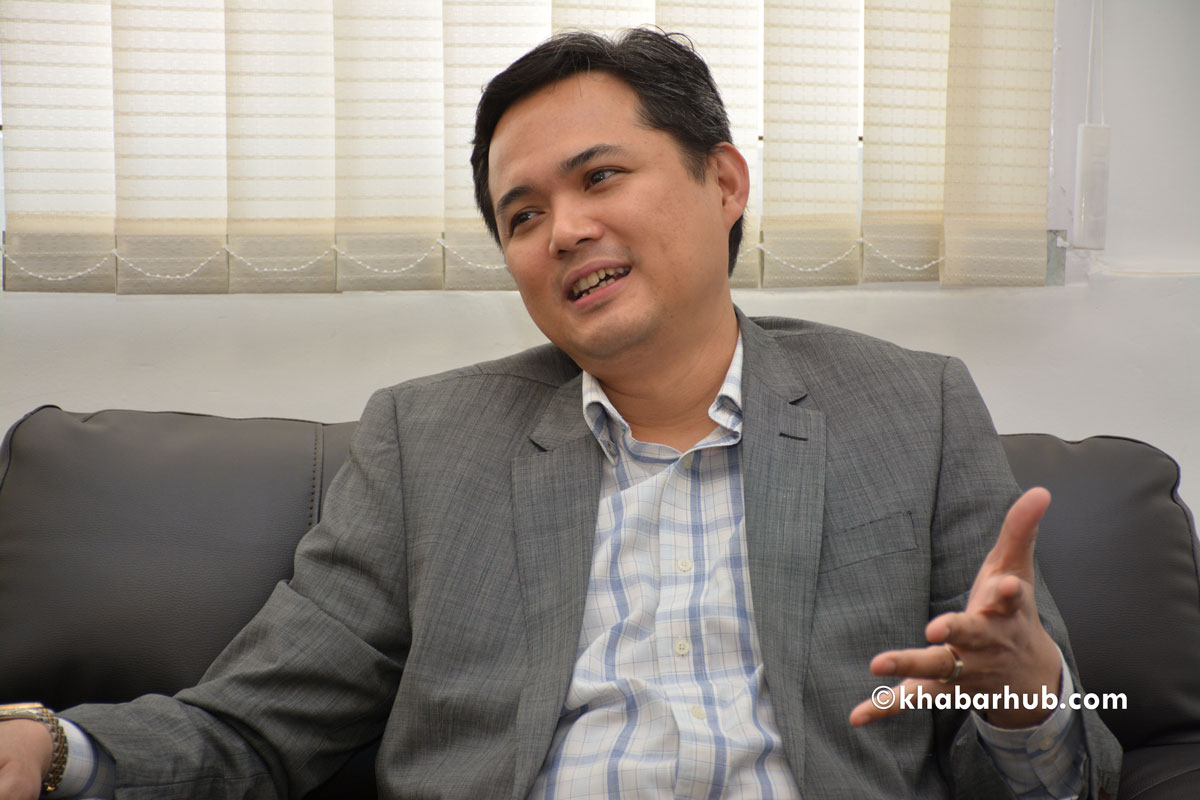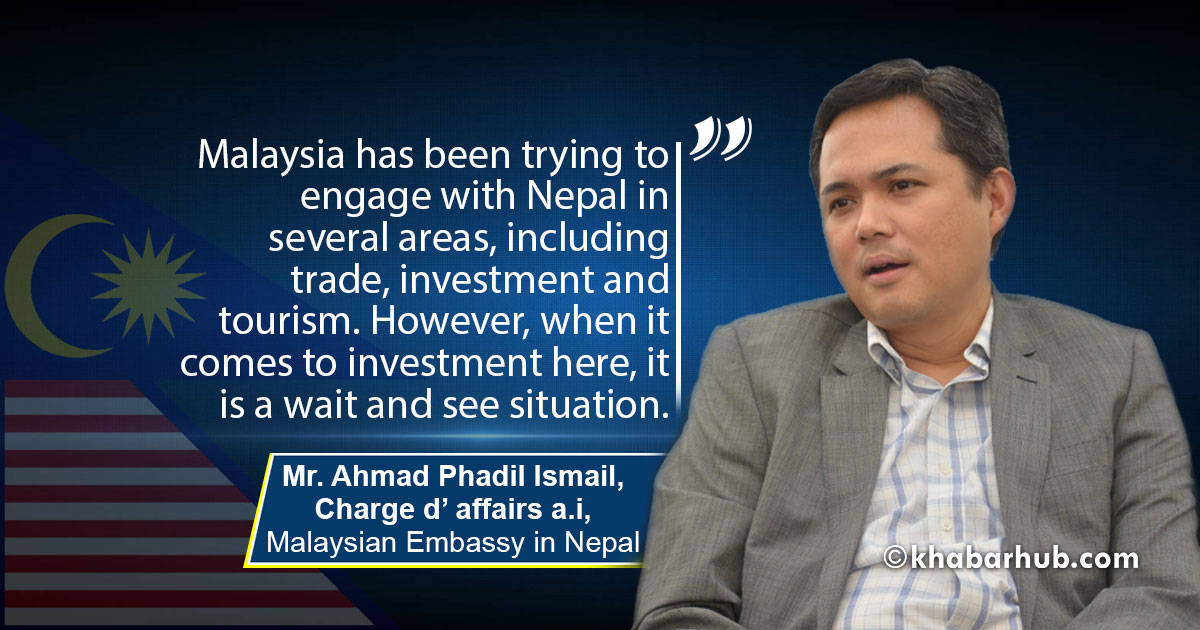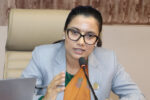Nepal established diplomatic relations with Malaysia in 1960. Malaysia, which has been Nepal’s one of the major trading partners, recognized Nepal as a source country for foreign workers in 2001. Khabarhub recently caught up Mr. Ahmad Phadil Ismail, Charge d’ affairs a.i., at the Malaysian Embassy in Nepal and talked on a range of issues, including Malaysian investment in Nepal. Excerpts:
It’s been almost 60 years of Nepal-Malaysia bilateral relations. How do you access the current state of affairs?
Relations between Nepal and Malaysia has always remained smooth. It seems that we are focusing on only one sector that is labor. It is high time that we expanded other areas as well. In fact, we have been trying to engage in other terms such as trade, investment, and tourism.
Unfortunately, at the moment the situation has been stagnant for the last three years. It’s been a challenge for us either to encourage the labor issue or run away from it. Apart from labor, we have one big investment in Nepal through the acquisition of NCell through Axiata Company, which is a telecommunications enterprise, which, however, got into complication in recent times.
How optimistic are you about resolving the confusion concerning Axiata?
Let’s hope that this issue will not jeopardize the investment. The recent involvement of investment with regards to Axiata and Ncell to pay some money is their responsibility. But having been a company from Malaysia, where we have Asian values, we normally follow the rules. But I will leave it Axiata to comment on its part.
I very much believe Axiata is still discussing and looking at the legal aspects. Let’s hope that the company and the government could work together to resolve the issue.

What other areas would Malaysia consider it worth to make investments in Nepal?
We pursued a few projects in the past such as the second international airport and fast track. We have a consortium of companies willing to develop the projects. Unfortunately, the discussions did not progress as expected. We have the expertise in terms of infrastructure development. We thought that it would have been a good opportunity for us to work and develop infrastructure here in Nepal.
Unfortunately, it did not go well since the government here did not exhibit the interest. Frankly speaking, we are also interested in hydropower, which, too, did not go well due to certain reasons. But we still look at Nepal as a potential market that will benefit both the sides.
Despite your interest in investment here, what is hindering the process?
Earlier, it was political instability. We had several rounds of discussions with the concerned ministers but the frequent change in the governments hindered the process. In fact, it was difficult for us to explain the same issue to different ministers. Another important issue is that Malaysia considered Nepal as a resource country for labor. This, as I said earlier, has been caught in a quagmire.
Talking about investment, what is your impression on the recently-concluded Nepal Investment Summit?
The Summit was impressive in terms of the setup. For us, however, it is a wait and see situation since it is difficult for us to lay out all projects available in Malaysia. Whether or not those projects are feasible here, the problem here is with the implementation part. Signing documents is one part, and its implementation is a different part.
I, however, hope that some projects can be implemented if Nepal moved forward with open-mindedness. We believe that when other countries have taken a leap forward in a short span of time, Nepal should not lag behind.
What hurdles do Malaysian investors face in Nepal?
So far as the information that we have received, getting approval for investment is very difficult. A few Malaysian companies, which came here for investment in hydropower, said they had to go several layers of formalities for getting approval for a project. Moreover, the policy is not very clear in terms of setting a business here.
Another hurdle is the port, which is too far.
There are other issues such as lack of proper infrastructure, lengthy procedures, among others. Based on my discussion regarding the fast track, I would say that the process was too lengthy. In mid-2017, we thought to construct the fast track through a Malaysian company having the expertise in developing highways and digging tunnels in Malaysia. We had business engagements with the local partners also. However, the authorities here took so much of time to decide on the tender. However, we are not complaining about the Nepali authorities.
What about tourism prospects?
Malaysia is trying to attract more tourists from Nepal. We are also working towards developing Malaysia as an education hub to attract students from Nepal, India and other countries. Our primary focus would, however, be India because of its huge population. Moreover, we receive a significant number of Indian tourists every year.
Last year only, Malaysia received one million plus Indian tourists. It is a matter of delight that we received around 50 thousand Nepali tourists last year. We definitely like to increase the number of Nepali tourists. However, both countries need to work hard to promote tourism in both the countries.
A substantial number of Nepali workers are currently in Malaysia. How do your government work to ensure their safety and security?
Yes, a lot of Nepali workers are working in Malaysia. We have also workers from Indonesia, Bangladesh, Vietnam, Cambodia, and Myanmar. However, there are certain policies implemented by the government of Malaysia about rules and regulations that they (workers) need to follow. The government is serious towards the security and welfare of the workers. I do not rule out the fact that some workers are victimized by employers. We are serious that the employers do not exploit the workers, and are benefitted. Things will certainly improve.
There are other concerns such as the implementation of the one-stop service center. Could you clarify on this?
The one-stop visa application had come into effect from September 2016. This means that all necessary process, including the application, visa procedure, and other formalities should go through the center. The Malaysian Embassy, however, has the final authority for visa approval. That is the standard procedure for all the countries, including Nepal. It is not a strange procedure.
Is it that Malaysia will resume the hiring process of Nepali workers soon?
This is all about the labor issue again. After the singing of the MoU last year, we are ready to hire Nepali workers. There is no pending issue on our side. The Government of Nepal has to accelerate the process. We are ready to discuss the mechanism under the joint working group and resume the process.
Does it mean that hat the ball in Nepal’s court?
I wouldn’t say that. However, Nepal should first clear the confusion. The process should go through two approvals. Currently, around 7 thousand plus workers have completed the process. They are waiting for the second approval from the Ministry of Labor. We have been informed last week that they have been approved and can apply for a visa. Will issue the visa once we received the application from them.
Could you elucidate about the free visa and free ticket status?
Let me clarify you that since Nepal introduced the free visa and ticket policy, it is up to it how it would implement the policy. The government should monitor that the stakeholders followed the policy. We agreed on the policy thinking that the stakeholders, including the workers coming to Malaysia, would abide by the policy.
We have the mechanism to ensure its strict implementation such as the security screening is the first stage in the procedure. Failing in the first stage will be barred from the second screening. The same implies medical examination. We check all the system, which is interlinked with our immigration department.
The immigration department issues the approval letter once the name and the medical report are right. Similarly, another layer of screening will be carried out in the embassy.









Comment